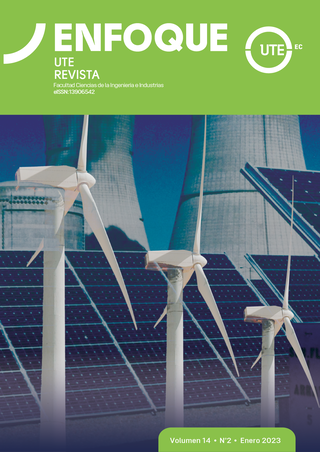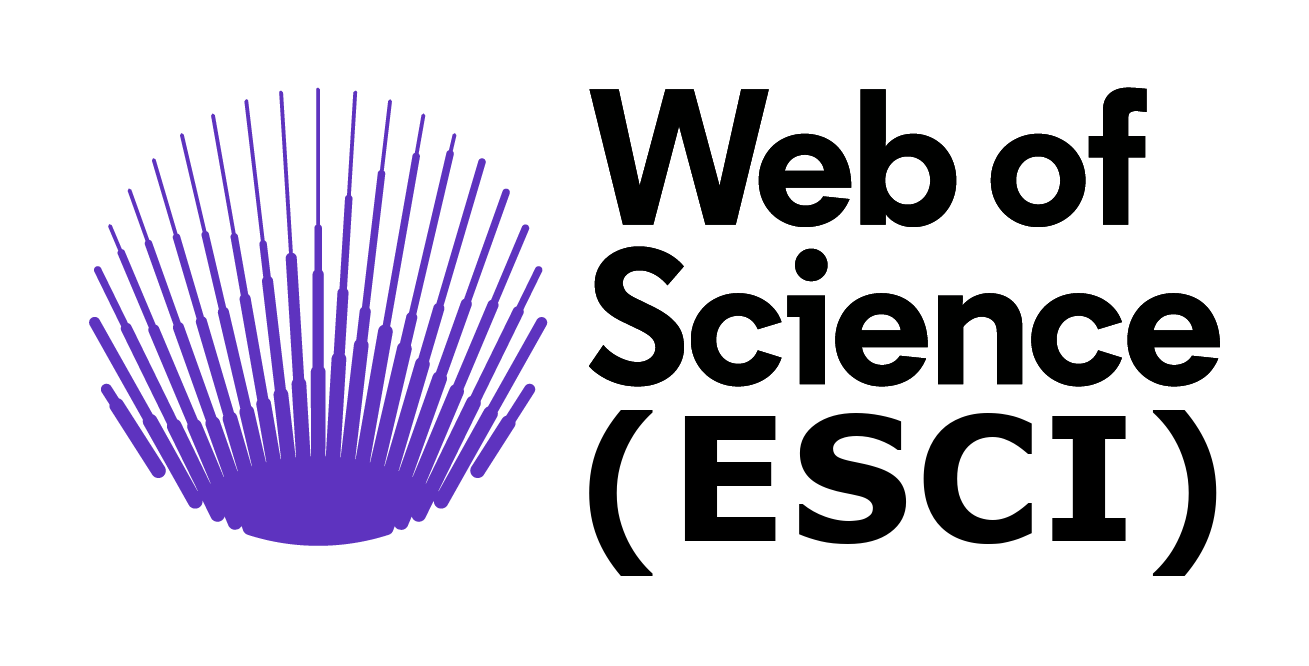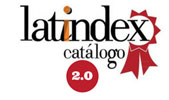Ludificación digital en el aprendizaje en edad preescolar: una revisión sistemática de la literatura
DOI:
https://doi.org/10.29019/enfoqueute.905Palabras clave:
ludificación digital, educación preescolar, revisión sistemática de la literatura, educación mejorada por tecnologíaResumen
En el contexto educativo, la ludificación ha emergido como una estrategia efectiva para potenciar el aprendizaje y la motivación. Con el auge de las tecnologías de la información y la comunicación ha surgido la Ludificación Digital (LD). A pesar de que existen numerosos estudios que resumen las contribuciones de la ludificación en la educación, muy pocos han incluido a la educación preescolar. La presente revisión, se apoya en 25 estudios primarios publicados realizados entre 2014 y 2022 e indexados en Scopus y Web of Sciences; busca cerrar esta brecha al caracterizar las principales contribuciones y sintetizar cualitativamente los efectos de la LD. Los resultados indican que hay un interés creciente sobre el tema, en donde la mayoría de los estudios se originan en Asia; se publican en revistas; y se basan en la propuesta de videojuegos para computadoras o dispositivos móviles que buscan mejorar el aprendizaje de la lengua. Predominan las investigaciones de enfoque narrativo, basadas en muestras inferiores a diez participantes, que emplean elementos de juego de tipo Logro (Progresión). Los 15 estudios que midieron algún tipo de efecto de la LD reportan resultados positivos. Sin embargo, estos son difíciles de generalizar por las pequeñas muestras consideradas y su diversidad en la experimentación.
Descargas
Citas
Arufe-Giráldez, V., Sanmiguel-Rodríguez, A., Ramos-Álvarez, O., y Navarro-Patón, R. (2022). Gamification in Physical Education: A Systematic Review. Education Sciences, 12(8), 540. https://doi.org/10.3390/educsci12080540/
Ati, M., Kabir, K., Abdullahi, H., y Ahmed, M. (2018). Augmented Reality Enhanced Computer Aided Learning for Young Children. En 2018 IEEE Symposium on Computer Applications & Industrial Electronics (ISCAIE 2018) (pp. 129-133). IEEE. 10.1109/ISCAIE.2018.8405457 https://doi.org/https://doi.org/10.1109/ISCAIE.2018.8405457/
Atighi Lorestani, E., y Khalili, M. (2017). How lighting dynamics create social interactive game. Proceedings of the 19th International Conference on Engineering and Product Design Education: Building Community: Design Education for a Sustainable Future, E and PDE 2017, 680-685. https://www.scopus.com/inward/record.uri?eid=2-s2.0-85042140667&partnerID=40&md5=5ad7d8a7bdef500ae6a6321adbad23ce/
Batanero, C. (2001). Introducción a la inferencia. En G. de I. FQM (Ed.), Didáctica de la Estadística (1st ed., pp. 15–26). UGR.
Bhavnani, S., Mukherjee, D., Dasgupta, J., Verma, D., Parameshwaran, D., Divan, G., Sharma, K. K., Thiagarajan, T., y Patel, V. (2019). Development, feasibility and acceptability of a gamified cognitive DEvelopmental assessment on an E-Platform (DEEP) in rural Indian pre-schoolers–a pilot study. Global Health Action, 12(1). https://doi.org/10.1080/16549716.2018.1548005/
Calderón, A., y Ruiz, M. (2015). A systematic literature review on serious games evaluation: An application to software project management. Computers & Education, 87, 396-422. https://doi.org/10.1016/j.compedu.2015.07.011/
Cladis, A. E. (2020). A shifting paradigm: An evaluation of the pervasive effects of digital technologies on language expression, creativity, critical thinking, political discourse, and interactive processes of human communications. E-Learning and Digital Media, 17(5), 341-364. https://doi.org/10.1177/2042753017752583/
Creswell, J. W., y Creswell, J. D. (2018). Research Design: Qualitative, Quantitative, and Mixed Methods Approaches. SAGE Publications. https://www.ucg.ac.me/skladiste/blog_609332/objava_105202/fajlovi/Creswell.pdf/
Dichev, C., y Dicheva, D. (2017). Gamifying education: What is known, what is believed and what remains uncertain: a critical review. International Journal of Educational Technology in Higher Education, 14(1), 9. https://doi.org/10.1186/s41239-017-0042-5/
Dicheva, D., Dichev, C., Agre, G., y Angelova, G. (2015). Gamification in Education: A Systematic Mapping Study. Journal of Educational Technology & Society, 18(3), 75-88. JSTOR. https://www.jstor.org/stable/jeductechsoci/
García-Murillo, G., Novoa-Hernández, P., y Rodríguez, R. S. (2020). Technological acceptance of Moodle through latent variable modeling – a systematic mapping study. Interactive Learning Environments, 1-17. https://doi.org/10.1080/10494820.2020.1857786/
Hamari, J., Koivisto, J., y Sarsa, H. (2014). Does Gamification Work? -A Literature Review of Empirical Studies on Gamification. 2014 47th Hawaii International Conference on System Sciences, 3025-3034. https://doi.org/10.1109/HICSS.2014.377/
Hebebci, M. T., y Alan, S. (2021). Gamification in education: An overview of the literature. En A. Csiszárik-Kocsir & & P. Rosenberger (Eds.), Current Studies in Social Sciences 2021 (pp. 174-194). ISRES Publishing.
Kalogiannakis, M., Papadakis, S., y Zourmpakis, A.-I. (2021). Gamification in Science Education. A Systematic Review of the Literature. Education Sciences, 11(1), 22. https://doi.org/10.3390/educsci11010022/
Kapp, K. M. (2012). The Gamification of Learning and Instruction: Game-based Methods and Strategies for Training and Education. Wiley.
Loganathan, P., Talib, C. A., Thoe, N., Aliyu, F., y Zawadski, R. (2019). Implementing Technology Infused Gamification in Science Classroom: A Systematic Review and Suggestions for Future Research. Learning Science and Mathematics, 14, 60-73.
Marín Suelves, D., Vidal Esteve, M. I., Donato, D., y Granados Saiz, J. (2021). Análisis del estado del arte sobre el uso de los videojuegos en Educación Infantil y Primaria. Innoeduca. International Journal of Technology and Educational Innovation, 7(2), 4-18. https://doi.org/10.24310/innoeduca.2021.v7i2.11541/
Martens, M., Rinnert, G. C., y Andersen, C. (2018). Child-centered design: Developing an inclusive letter writing app. Frontiers in Psychology, 9(DEC). https://doi.org/10.3389/fpsyg.2018.02277/
Mongeon, P., y Paul-Hus, A. (2016). The journal coverage of Web of Science and Scopus: A comparative analysis. Scientometrics, 106(1), 213-228. https://doi.org/10.1007/s11192-015-1765-5/
Murillo, G. G., Novoa-Hernández, P., y Rodríguez, R. S. (2021). Technology Acceptance Model and Moodle: A systematic mapping study. Information Development, 37(4), 617-632. https://doi.org/10.1177/0266666920959367/
Nicolaidou, I., Tozzi, F., y Antoniades, A. (2022). A gamified app on emotion recognition and anger management for pre-school children. International Journal of Child-Computer Interaction, 31. https://doi.org/10.1016/j.ijcci.2021.100449/
Oliva-Maza, A., Ayuso-Escuer, N., Coma-Rosello, T., y Torres-Moreno, E. F. (2021). Mystery of the Runaway Letrabytes: Inclusive Assessment of Phonological Awareness with Tangible Gamification. Revista Iberoamericana de Tecnologias del Aprendizaje, 16(4), 424-432. https://doi.org/10.1109/RITA.2021.3136442/
Ongoro, C. A., y Mwangoka, J. W. (2019). Effects of digital games on enhancing language learning in Tanzanian preschools. Knowledge Management and E-Learning, 11(3), 325-344. https://doi.org/10.34105/j.kmel.2019.11.017/
Page, M. J., McKenzie, J. E., Bossuyt, P. M., Boutron, I., Hoffmann, T. C., Mulrow, C. D., Shamseer, L., Tetzlaff, J. M., Akl, E. A., Brennan, S. E., Chou, R., Glanville, J., Grimshaw, J. M., Hróbjartsson, A., Lalu, M. M., Li, T., Loder, E. W., Mayo-Wilson, E., McDonald, S., … Moher, D. (2021). The PRISMA 2020 statement: An updated guideline for reporting systematic reviews. Systematic Reviews, 10(1), 89. https://doi.org/10.1186/s13643-021-01626-4/
Peled, S., y Schocken, S. (2014). Mobile learning and early age mathematics. Proceedings of the 10th International Conference on Mobile Learning 2014, ML 2014, 19-25. https://www.scopus.com/inward/record.uri?eid=2-s2.0-84944128737&partnerID=40&md5=1e6a331eec84e4ca6d4d29eecb4c45ea. ISBN: 978-989-8704-02-3/
Plass, J. L., Mayer, R. E., y Homer, B. D. (2020). Handbook of Game-Based Learning. MIT Press. https://books.google.es/books?id=5NCMEAAAQBAJ/
Portela Iglesias, M. A., y García Fernández, G. (2017). Digital peer-assessment activities: students as the heroes of a transition from content consumers to creators of significative learning. En L. Chova, A. Martinez, y I. Torres (Eds.), INTED2017: 11TH international technology, education and development conference (pp. 1705-1714). IATED-INT Assoc Technology Education & Development. doi: 10.21125/inted.2017.0530.
Rahmah, M., y Siti Aishah, Z. (2019). Effectiveness of kinect-based application in gamification approach for preschooler: Case study in Taska Permata Perpaduan, Kuantan, Pahang, Malaysia. ACM International Conference Proceeding Series, 124-129. https://doi.org/10.1145/3306500.3306534
Riska, N., Handini, M. C., Asmawi, M., y Jarudin. (2021). Instructional-based Gamification in Improving Knowledge in Early Childhood. International Journal of Early Childhood Special Education, 13(2), 948-958. https://doi.org/10.9756/INT-JECSE/V13I2.211138/
Rivas, R. S., Novoa-Hernández, P., y Rodríguez, R. S. (2019). Evaluation of the presence of digital competences in higher education institutions | [Evaluación de la presencia de competencias digitales en las instituciones de educación superior en América Latina]. Revista Ibérica de Sistemas e Tecnologias de Informação, 2019(E21), 23-36. https://doi.org/10.20511/pyr2019.v7n2.329
Ryan, R. M., & Deci, E. L. (2000). Self-determination theory and the facilitation of intrinsic motivation, social development, and well-being. American Psychologist, 55(1), 68-78. https://doi.org/10.1037/0003-066X.55.1.68
Saltos-Rivas, R., Novoa-Hernández, P., & Serrano Rodríguez, R. (2021). On the quality of quantitative instruments to measure digital competence in higher education: A systematic mapping study. PLOS ONE, 16(9), e0257344. https://doi.org/10.1371/journal.pone.0257344
Sasi, S., Chang, M., Altinay-Aksal, F., Kayimbasioglu, D., Haci, H., Kinshuk, y Altinay-Gazi, Z. (2017). Technology enhanced instruction: An example of english language learning in the context of peace. Eurasia Journal of Mathematics, Science and Technology Education, 13(6), 1605-1614. https://doi.org/10.12973/eurasia.2017.00687a
Schocken, S., y Kupferman, R. (2018). USING GAMES TO LEARN EARLY AGE ALGEBRA. En L. Chova, A. Martinez, & I. Torres (Eds.), edulearn18: 10th international conference on education and new learning technologies (pp. 10344-10353). IATED-INT Assoc Technology Education & Development.
Subhash, S., y Cudney, E. A. (2018). Gamified learning in higher education: A systematic review of the literature. Computers in Human Behavior, 87, 192-206. https://doi.org/10.1016/j.chb.2018.05.028/
Sudarmilah, E., y Arbain, A. F. B. (2019). Using gamification to stimulate the cognitive ability of preschoolers. International Journal of Innovative Technology and Exploring Engineering, 8(6), 1250-1256.
Torres-Rojas, I. S., Garcés-Bolaños, Y. S., y León Blanco, D. A. (2022). Development of an M-Learning application for early childhood education in emotional consciousness [Desarrollo de una aplicación M-Learning para educar en conciencia emocional a la primera infancia]. Gaceta Medica de Caracas, 130, S779-S790. https://doi.org/10.47307/GMC.2022.130.s3.31/
Wang, J., Song, Q., Gao, S., y Tao, Y. (2020). A Systematic Review of Game Learning Research in China. En X. Fang (Ed.), HCI in Games (Vol. 12211, pp. 486-502). Springer International Publishing. https://doi.org/10.1007/978-3-030-50164-8_36/
Zainuddin, Z., Chu, S. K. W., Shujahat, M., y Perera, C. J. (2020). The impact of gamification on learning and instruction: A systematic review of empirical evidence. Educational Research Review, 30, 100326. https://doi.org/10.1016/j.edurev.2020.100326/
Zamuner, T. S., Kilbertus, L., y Weinhold, M. (2017). Game-influenced methodology: Addressing child data attrition in language development research. International Journal of Child-Computer Interaction, 14, 15-22. https://doi.org/10.1016/j.ijcci.2017.09.001/
Zualkernan, I. A., Aloul, F., Algebail, E., Refaay, M. E., Ali, A., y Sabaa, O. E. (2020). Little genius: An experiment in internet of tangible learning things. Proceedings - IEEE 20th International Conference on Advanced Learning Technologies, ICALT 2020, 69-71. https://doi.org/10.1109/ICALT49669.2020.00028/
Zviel-Girshin, R., & Rosenberg, N. (2018). Educational Technology for Pre-K Digizens. ACM International Conference Proceeding Series, 30-34. https://doi.org/10.1145/3234825.3234840/
Descargas
Publicado
Cómo citar
Número
Sección
Licencia
Derechos de autor 2023 Los Autores

Esta obra está bajo una licencia Creative Commons Reconocimiento 3.0 Unported.
Los artículos e investigaciones publicadas por la Universidad UTE, se realizan en régimen de Acceso Abierto [Open Access] en formato electrónico. Esto significa que todo el contenido está disponible de forma gratuita sin costo para el usuario o su institución. Los usuarios pueden leer, descargar, copiar, distribuir, imprimir, buscar o enlazar los textos completos de los artículos, o usarlos para cualquier otro propósito legal, sin necesidad de pedir permiso previo al editor o al autor. Esto está de acuerdo con la definición de acceso abierto de la Iniciativa de Acceso Abierto de Budapest (BOAI). Al enviar un artículo a cualquiera de las revistas científicas de la Universidad UTE, el o los autores aceptan estas condiciones.
La UTE aplica la licencia Creative Commons Attribution (CC-BY) a los artículos de sus revistas científicas. En virtud de esta licencia de acceso abierto, como autor usted acuerda que cualquier persona puede reutilizar su artículo en su totalidad o en parte para cualquier propósito, de forma gratuita, incluso para fines comerciales. Cualquiera puede copiar, distribuir o reutilizar el contenido siempre y cuando el autor y la fuente original estén correctamente citados. Esto facilita la libertad de reutilización y también asegura que el contenido pueda ser extraído sin barreras para necesidades de investigación.
Esta obra está bajo una Creative Commons Attribution 3.0 International (CC BY 3.0).
Además, la Revista Enfoque UTE garantiza y declara que los autores conservan siempre todos los derechos de autor y todos los derechos de publicación sin restricciones [© Los Autores]. El reconocimiento (BY) permite cualquier explotación de la obra, incluyendo una finalidad comercial, así como la creación de obras derivadas, la distribución de las cuales también está permitida sin ninguna restricción.























 Enfoque UTE - Facultad de Ciencias de la Ingeniería e Industrias - Universidad UTE
Enfoque UTE - Facultad de Ciencias de la Ingeniería e Industrias - Universidad UTE